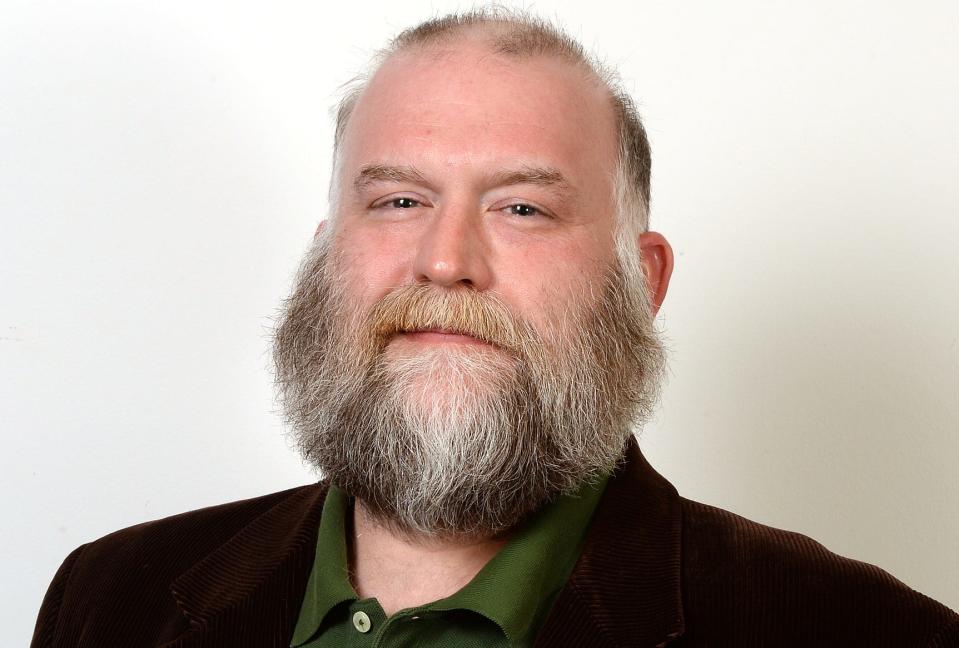David Murdock Column: On letting the mind wonder into eternity
In this column over the years, I’ve made it absolutely clear that I enjoy reading. One thing that still puzzles me after all these years, though, is how we are able to read. Reading is the most basic academic skill, one that most of us learn how to perform competently early in life.
However, reading still perplexes me in many ways. One of my devotional readings not long back was from the Bible's book of Ecclesiastes, a favorite. In chapter 3, the second part of verse 11 reads, “He has also set eternity in the human heart; yet no one can fathom what God has done from beginning to end.” That’s from the New International Version, and most recent translations use the same word: “eternity.” Some older translations use “world,” instead.
That phrase brought me to a halt. What does it mean that the Lord has set “eternity in the human heart”? I understand that no human can “fathom” the depth “what God has done from beginning to end.” At least, I think I do. But “eternity in the human heart” flummoxed me.

It didn’t take long for the Lord to give me an inkling of the meaning. Later that week, I was reading — surprise, surprise — another murder mystery. I won’t tell y’all the title of this one to avoid any possible spoilers, but it was written by one of the four “Queens of Crime” of pre-World War 2 British crime fiction ― the aptly termed “Golden Age.” This particular book was published in 1938.
For those of y’all who aren’t fans of mystery fiction, these books follow a pattern. Usually, the first third of a mystery novel sets the scene and introduces the characters. Then, the victim is murdered about one-third of the way through the book, more or less. I had gotten to that point when the victim usually dies. For the first time while reading a murder mystery, I was upset at who the victim was.
In fact, I was outraged. I really liked the character who was killed. The author had perfectly painted this person, down to the eccentric clothing he wore. The writer had spent enough time describing his personal eccentricities that I could easily imagine even how that person moved his hands. The character was delightful. And now … gone.
Since the character was a personal friend of the detective, I guess I thought he was “safe.” When the detective then vowed to spend the rest of his life tracking down the murderer, I thought “You had better. You don’t want me finding a way to come into this book and doing it for you!”
Think about it ― that “person” who got killed? Nothing more than words on a page. Nothing. Why did I care so much about solving his murder? That is how a really skillful writer works. I began to “care” about a “person” who was nothing more than scribbles on processed wood pulp.
Wood. Trees. How many trees have been cut down to provide books for me? And that particular page? How long did the tree that provided that page grow? How long in the sun? Sunrises? Sunsets? Where did it grow? Somewhere in the South? Did it even grow in America at all?
To be completely honest, I wasn’t reading this book on actual paper. I bought it as an e-book for my Kindle. That’s even worse! At least a physical book is made out of physical material. Words on a Kindle page are made out of … pixels. Pixels are far more ephemeral.
The writer has been long gone, too. I noted where her grave is, in case I’m ever in that corner of the world. Why do I want to stop by and leave some flowers? I didn’t know her, even if I sort of think I did. She died when I was only a child; I’d never heard of her at all until about a decade ago.
Why do her words affect me so?
There ― in a few fleeting words ― is “eternity,” at least as I understand it.
And that “world” of the book is entirely imagined by a human mind, a writer writing nearly three decades before I was even born. Imagine the complexity of “what God has done from beginning to end”! I cannot even begin.
All the little mysteries of the day — I can’t even begin to figure out those things. If I go back to trees, for example, and think of how many trees there are — each one of them unique ― I quickly bog down in thought. Each tree trunk is shaped by its “experiences.” What caused those limbs to grow as they did? Why that scar in the bark?
Have y’all ever seen a photo of a bristlecone pine tree from out West? Amazing! I’ve got to get out that way to see one in person.
And rock strata. And rivers and streams. And that sky! Have y’all ever really looked at the sky? Really looked at it? Clouds and stars, the whole shebang?
Since yesterday, I’ve been reading and re-reading two paragraphs in an Annie Dillard essay about … weasels. Those words are amazing. So are weasels.
There’s so much to see, so many places to go. Eternity, indeed.
David Murdock is an English instructor at Gadsden State Community College. He can be contacted at murdockcolumn@yahoo.com. The opinions expressed are his own.
This article originally appeared on The Gadsden Times: David Murdock on letting the mind wonder from here to eternity

